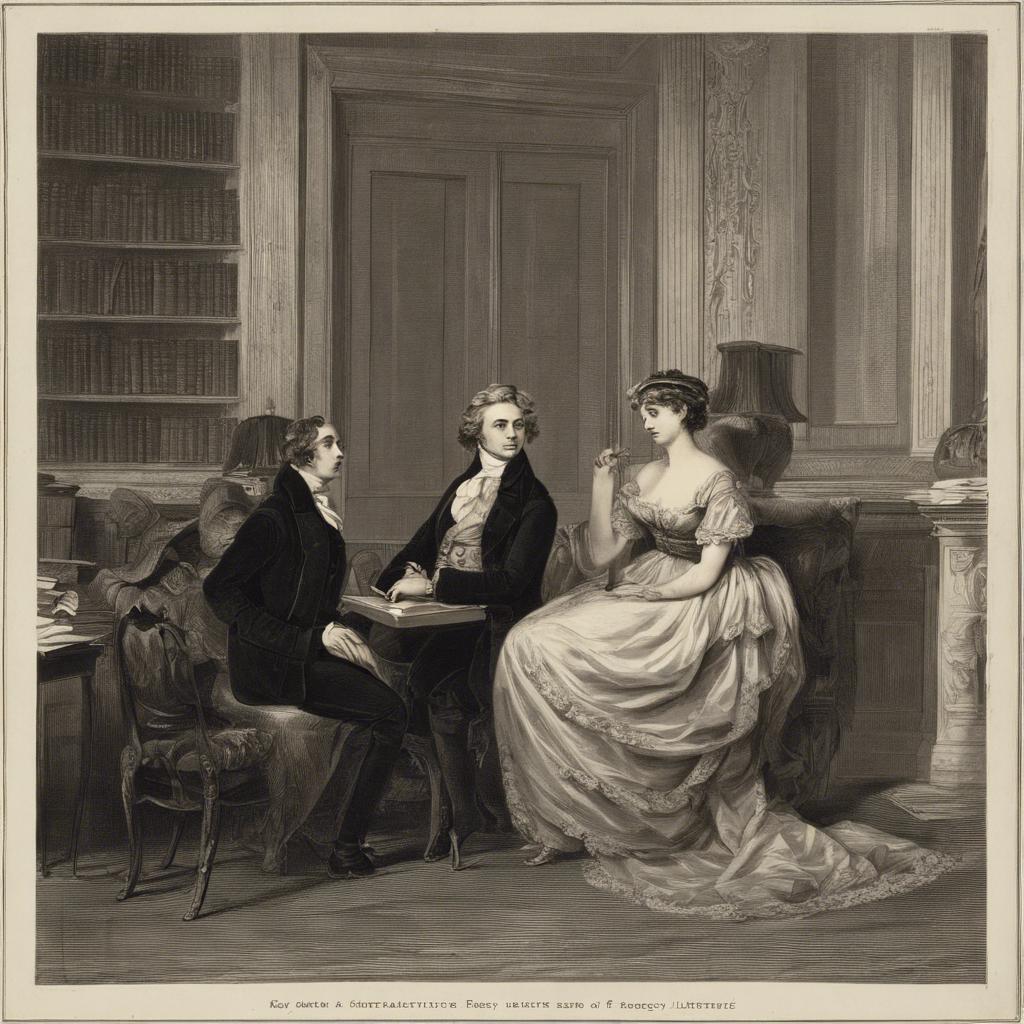The Regency era, spanning from 1811 to 1820, was a time of elegance, refinement, and societal change in England. It was a period characterized by the rule of Prince Regent George IV, and marked by a distinctive cultural and literary landscape. In this article, we delve into the world of Regency era books, exploring the works of renowned authors such as Jane Austen and Sir Walter Scott, and examining how these literary treasures reflect the values and ethos of their time. Join us on a journey back in time to explore the captivating and sophisticated world of Regency literature.
Step Into the World of Cheryl Bolen
Dive into the enchanting stories of love, intrigue, and elegance set in the Regency Era. Cheryl Bolen's novels offer timeless romance and captivating tales that will leave you wanting more.
Explore Cheryl Bolen's Books Now
Key Characteristics of Regency Era Literature
The literature of the Regency Era is characterized by its unique style and themes. One key characteristic is the focus on romance and relationships, with many novels centering around the courtship and marriage of the main characters. These stories often explore the challenges and triumphs of love in a society governed by strict social norms and expectations.
Another important characteristic of Regency Era literature is its vivid portrayal of the societal and political landscape of the time. Authors often incorporated elements of historical events, class dynamics, and cultural norms into their works, providing readers with a rich and detailed depiction of Regency-era England.
In addition, Regency Era literature is known for its wit, humor, and social commentary. Writers such as Jane Austen and Maria Edgeworth used satire and irony to critique the conventions and values of their society, offering a nuanced and insightful perspective on the world in which they lived.
Exploring the Themes and Tropes in Regency Era Novels
The Regency Era is a fascinating period in history, filled with intrigue, romance, and societal expectations. In Regency era novels, we often see common themes and tropes that highlight the manners and customs of the time. These themes provide insight into the societal norms and values of the Regency period, offering readers a glimpse into a world filled with ballrooms, carriages, and matchmaking.
One common theme in Regency era novels is the focus on marriage and social status. In these novels, marriage is often portrayed as a strategic alliance between families, where love is not always the main consideration. Characters must navigate the complexities of societal expectations and family obligations, while also grappling with their own desires and emotions. This theme adds depth and drama to the storyline, creating tension and conflict that keeps readers engaged.
Another prevalent trope in Regency era novels is the emphasis on class distinctions and hierarchy. The rigid social structure of the time is reflected in the relationships between characters, with aristocrats and commoners often kept apart by societal norms. This trope adds a layer of tension and drama to the narrative, as characters must navigate the intricacies of class differences while trying to find love and happiness. exploring these themes and tropes in Regency era novels offers readers a captivating glimpse into a bygone era filled with passion, intrigue, and elegance.
Notable Authors and Must-Read Books from the Regency Era
The Regency Era, spanning from 1811 to 1820, was a period marked by elegance, romance, and societal change. During this time, many talented authors emerged, producing works that continue to captivate readers today. Here are some of the most :
Authors:
- Jane Austen: Known for her wit and social commentary, Jane Austen is one of the most famous authors of the Regency Era. Her works, including “Pride and Prejudice” and “Sense and Sensibility,” are beloved for their timeless themes and engaging characters.
- Lord Byron: A poet and leading figure in the Romantic movement, Lord Byron’s works, such as “Don Juan” and “Childe Harold’s Pilgrimage,” are still widely read for their lyrical beauty and emotional depth.
Must-Read Books:
- “Emma” by Jane Austen: A charming tale of matchmaking and self-discovery, “Emma” follows the spirited heroine Emma Woodhouse as she navigates the complexities of love and friendship in Regency England.
- “Mansfield Park” by Jane Austen: In this novel, Austen explores themes of morality, class, and personal growth through the story of Fanny Price, a young woman who faces temptation and hardship in her quest for happiness.
A Deeper Dive into the Social Commentary in Regency Era Literature
One of the most intriguing aspects of Regency era literature is the subtle yet powerful social commentary woven throughout the pages of these timeless books. Authors of this era often used their works to critique the societal norms and expectations of their time, shedding light on issues such as class disparities, gender roles, and the constraints of propriety.
**Key Themes in Regency Era Literature:**
- Marriage as a social contract
- Women’s lack of agency
- Class distinctions and societal hierarchy
Through the lens of fictional characters and intricate plots, readers are transported to a world where ballrooms and scandalous liaisons provide a backdrop for deeper exploration of human nature and the constraints of societal expectations. With richly drawn characters and vivid descriptions of high society, Regency era literature continues to captivate readers and offer a window into the past.
To Wrap It Up
the Regency era was a time of immense literary creativity and cultural change, producing some of the most beloved works of English literature. The novels of this period continue to captivate readers with their intricate plots, vivid characters, and timeless themes. Whether you are a dedicated scholar of the era or simply a lover of great literature, there is no shortage of Regency era books waiting to be discovered and enjoyed. So delve into the pages of these timeless works and let yourself be transported back in time to a world of elegance, romance, and intrigue. The legacy of the Regency era lives on in its literature, and its stories are truly a treasure trove for those who seek to explore the past through the written word.


